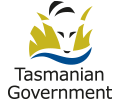8.11 Partnerships
Principles
Partnerships are mutually beneficial and co-operative relationships in which partners may share values, objectives, resources (human, material or financial), roles and responsibilities in order to achieve jointly desired outcomes. Partnerships may exist between two or more parties and can include partners external to government.
To develop cohesive and integrated services, the Government may decide to enter into partnerships that bring together parties with expertise and resources not currently held by government and in doing so improve outcomes and foster a spirit of cooperation within the community.
The decision to enter into a partnership agreement must be driven by sound business principles and only undertaken if it is likely to produce significant net benefit for government and the community with no detriment to the public interest.
When negotiating a partnership, government should do so in a manner that will withstand public scrutiny and is fair to existing and potential parties.
Definitions
The terms partnership and sponsorship are often used interchangeably, however there are some fundamental differences and as such they have been separated in this Policy (see section 8.10 Sponsorship).
Partnerships are distinct from sponsorship in that they are:
- typically of greater duration and span multiple events or activities
- more often entered to fulfil the strategic goals rather than the marketing goals of an organisation
- composed of organisations working collaboratively together and sharing equally in the outcomes of the initiative.
Policy requirements
When entering partnerships, agencies must:
- ensure the partnership is the subject of a written agreement that clearly details all terms and conditions of the partnership including the delivery of communication requirements associated with the partnership such as, use of corporate logos and protocols for publically releasing information generated as a result of the partnership
- ensure the Government contribution to the partnership is identified in accordance with the Tasmanian Government Style Guide and Logo Policy
- consult with the agency’s communications manager before entering into any negotiations and gain approval from the relevant head of agency (or their delegate) to accept a partnership agreement with communications implications.
- assess agreements to ensure:
- cost effectiveness compared to other alternative options to achieve the same business results
- management of risk, including maintenance of government creditability
- compliance/compatibility with agency policies or directions.
When entering into partnership arrangements, it is recommended that:
- agencies consult the Manager, Communications and Protocol Unit (DPAC) where a proposed partnership with communications implications may be considered contentious or of higher than normal risk
- agencies consider seeking the assistance of Crown Law to incorporate the appropriate terms and conditions in partnership agreements
- an evaluation of the partnership occurs at the conclusion of the agreement to assess the performance of the outcomes and relationship between the parties.
